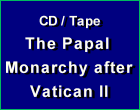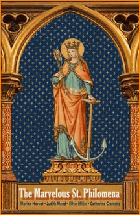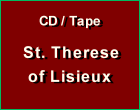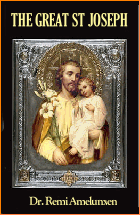Symbolism
 |
 |
 |
 |
 |
 |
 |
The Owl, Symbol of the Freemasons
I went with a friend to an estate sale in an upscale neighborhood in Los Angeles County. It was a lovely Spanish-style home, tastefully decorated with many European souvenirs and French figurines, which was our point of interest. One painting, however, broke that general harmony: a large ink drawing of an owl in a place of honor over the fireplace in the main living room.
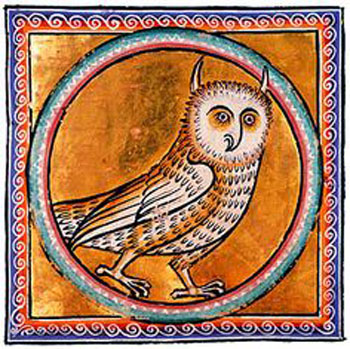 "Well, they must have really liked owls to put this one over here," my friend commented. I replied, "I think that this is not a question of taste; it is matter of fidelity to a religious belief. Probably the owner was a Mason. The owl is a longtime symbol of the Illuminati and Freemasons."
"Well, they must have really liked owls to put this one over here," my friend commented. I replied, "I think that this is not a question of taste; it is matter of fidelity to a religious belief. Probably the owner was a Mason. The owl is a longtime symbol of the Illuminati and Freemasons."
The symbolism in the animal kingdom is something the medieval world understood, but modern man has lost with its adoration of so-called natural science and positive facts.
After Adam's original sin, certain animals kept more of the paradisiacal characteristics and innately reflected more of the truth, goodness and beauty of God. The nobleness of the lion, the high horizons of the eagle, the perseverance and industry of the ant, the dove's fidelity to one mate – these were good qualities that made the animal admirable.
Other creatures, however, represented sin that had entered the world. Such animals – the frog always hiding and attached to the ground, the spider weaving its infernal snares to catch unaware victims, the bat sucking the blood of the animals when they sleep and only flying at night because it is blinded by daylight, the lack of seriousness of the ape – considered the worst beast (turpissima bestia) – which, along with the fork-tongued serpent, symbolizes Satan himself. These animals were reminders to man on earth the Devil ever lurking in the dark and skulking about in order to lure him into sin and the death of the soul.
The many good and bad beasts carved in stone and wood found on the medieval churches may say little to the modern man, but they spoke much to the minds of the people who understood the symbolism of the beasts.
The medieval interpretation of the owl
How did the medieval men understand the owl? For them, the owl symbolized mourning and desolation because it is a bird that lives for the darkness. Thus it represents sinners who have given up living in the light and have chosen the darkness of sin.
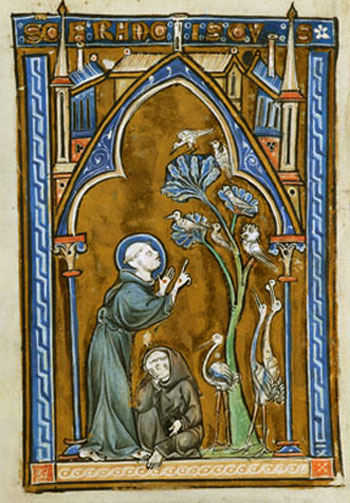 Since it hides in darkness and avoids the light, the owl also came to symbolize Satan, the Prince of Darkness.
Since it hides in darkness and avoids the light, the owl also came to symbolize Satan, the Prince of Darkness.
The Bestiaries tell us that the owl is a filthy bird, because it pollutes its own nest with its dung. It loves to live around tombs and decaying structures. When the owl ventures out into the daylight, the other birds attack it. The scene of the owl mobbed by other birds is common in manuscripts and is often carved on misericords. This was generally understood as the just hostility of the righteous toward the wicked.
For the medieval men, the owl also represented the Jews who have rejected Jesus Christ. The medieval bestiary Physiologus Latinus stresses this aspect of the nycticorax, translated as night crow or owl:
"This bird represents the Jewish people, who rejected our Lord and Savior. When He came to save them, they said, 'We have no king but Caesar' (Jn 19:15) 'but as to this man, we know not who He is' (Jn 9:29). On this account they love darkness more than light."
An image of St. Francis preaching to the birds from a 13th century psalter shows a prominent owl sitting on a branch, which was commonly understood as a representation of the Jews, a special target of conversion.
It can be confusing to the modern mind to find that in the medieval bestiaries, a bird whose primary representation was evil could nonetheless have a secondary meaning representing Christ or something good.
This remarkable flexibility came from an understanding that every creature made by God could represent some aspect of Him, albeit small, and have a quality that reflects Christ Who became man to save the world from sin.
Therefore, despite the primary negative connotations, the owl was also the sign of solitude and meditation in medieval monasteries, because it was known to stay in the same place for a long time. It flees from the light, in the sense that it does not look for the glory of human praise. In this sense the owl appears at times in scenes of hermits at prayer.
Symbol of the Illuminati & Freemasonry
The owl's symbolism with the occult and secret knowledge has a long history. Since the times of the Greeks and Romans, the owl – ruler of the night – was a guardian of the underworlds inhabited by the demons. An owl was always on the shoulder of Minerva and Athena, goddesses of wisdom and learning, symbolizing the occult knowledge of the pagan gods.
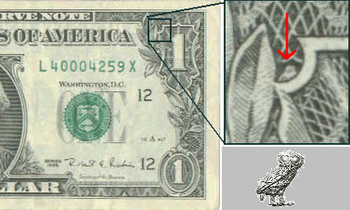 Since the Illumninati pretend to be the wise rulers of the planet, maintaining and passing on the secret knowledge of the ancient deities, that is, devils, the owl became one of their symbols. Its unblinking large eye represents the all-seeing eye of the Illuminati that never closes.
Since the Illumninati pretend to be the wise rulers of the planet, maintaining and passing on the secret knowledge of the ancient deities, that is, devils, the owl became one of their symbols. Its unblinking large eye represents the all-seeing eye of the Illuminati that never closes.
Because the owl’s eyes seem to not move, it moves its neck to turns its head completely around to see, another sign of the occult sects which, through their initiated agents, can see where normal men cannot. And, like the owl, the Freemasons gather in secret, far from the light of day.
Freemasons also consider the owl a symbol of reincarnation: since it is awake at night they consider it a symbol of the soul that has left a dead body and remains in the night, waiting to re-enter another body that is being conceived. For them the owl symbolizes metempsychosis, which is their theory of reincarnation of the souls.
Thus the old owl from our nursery tales acquires a more sinister aspect.
These are some of the reasons why I told my friend that most probably the owner of that pleasant Spanish-style house we visited was a Freemason.



A horned owl on a medieval manuscript,
understood as something evil
The symbolism in the animal kingdom is something the medieval world understood, but modern man has lost with its adoration of so-called natural science and positive facts.
After Adam's original sin, certain animals kept more of the paradisiacal characteristics and innately reflected more of the truth, goodness and beauty of God. The nobleness of the lion, the high horizons of the eagle, the perseverance and industry of the ant, the dove's fidelity to one mate – these were good qualities that made the animal admirable.
Other creatures, however, represented sin that had entered the world. Such animals – the frog always hiding and attached to the ground, the spider weaving its infernal snares to catch unaware victims, the bat sucking the blood of the animals when they sleep and only flying at night because it is blinded by daylight, the lack of seriousness of the ape – considered the worst beast (turpissima bestia) – which, along with the fork-tongued serpent, symbolizes Satan himself. These animals were reminders to man on earth the Devil ever lurking in the dark and skulking about in order to lure him into sin and the death of the soul.
The many good and bad beasts carved in stone and wood found on the medieval churches may say little to the modern man, but they spoke much to the minds of the people who understood the symbolism of the beasts.
The medieval interpretation of the owl
How did the medieval men understand the owl? For them, the owl symbolized mourning and desolation because it is a bird that lives for the darkness. Thus it represents sinners who have given up living in the light and have chosen the darkness of sin.

St. Francis preaching to the birds: the owl represents the Jews in need of conversion
The Bestiaries tell us that the owl is a filthy bird, because it pollutes its own nest with its dung. It loves to live around tombs and decaying structures. When the owl ventures out into the daylight, the other birds attack it. The scene of the owl mobbed by other birds is common in manuscripts and is often carved on misericords. This was generally understood as the just hostility of the righteous toward the wicked.
For the medieval men, the owl also represented the Jews who have rejected Jesus Christ. The medieval bestiary Physiologus Latinus stresses this aspect of the nycticorax, translated as night crow or owl:
"This bird represents the Jewish people, who rejected our Lord and Savior. When He came to save them, they said, 'We have no king but Caesar' (Jn 19:15) 'but as to this man, we know not who He is' (Jn 9:29). On this account they love darkness more than light."
An image of St. Francis preaching to the birds from a 13th century psalter shows a prominent owl sitting on a branch, which was commonly understood as a representation of the Jews, a special target of conversion.
It can be confusing to the modern mind to find that in the medieval bestiaries, a bird whose primary representation was evil could nonetheless have a secondary meaning representing Christ or something good.
This remarkable flexibility came from an understanding that every creature made by God could represent some aspect of Him, albeit small, and have a quality that reflects Christ Who became man to save the world from sin.
Therefore, despite the primary negative connotations, the owl was also the sign of solitude and meditation in medieval monasteries, because it was known to stay in the same place for a long time. It flees from the light, in the sense that it does not look for the glory of human praise. In this sense the owl appears at times in scenes of hermits at prayer.
Symbol of the Illuminati & Freemasonry
The owl's symbolism with the occult and secret knowledge has a long history. Since the times of the Greeks and Romans, the owl – ruler of the night – was a guardian of the underworlds inhabited by the demons. An owl was always on the shoulder of Minerva and Athena, goddesses of wisdom and learning, symbolizing the occult knowledge of the pagan gods.

An owl hides in the right hand corner of the dollar bill
Because the owl’s eyes seem to not move, it moves its neck to turns its head completely around to see, another sign of the occult sects which, through their initiated agents, can see where normal men cannot. And, like the owl, the Freemasons gather in secret, far from the light of day.
Freemasons also consider the owl a symbol of reincarnation: since it is awake at night they consider it a symbol of the soul that has left a dead body and remains in the night, waiting to re-enter another body that is being conceived. For them the owl symbolizes metempsychosis, which is their theory of reincarnation of the souls.
Thus the old owl from our nursery tales acquires a more sinister aspect.
These are some of the reasons why I told my friend that most probably the owner of that pleasant Spanish-style house we visited was a Freemason.

Owls from various medieval manuscripts symbolizing sinners and the Jews

Posted March 13, 2015
______________________
______________________



